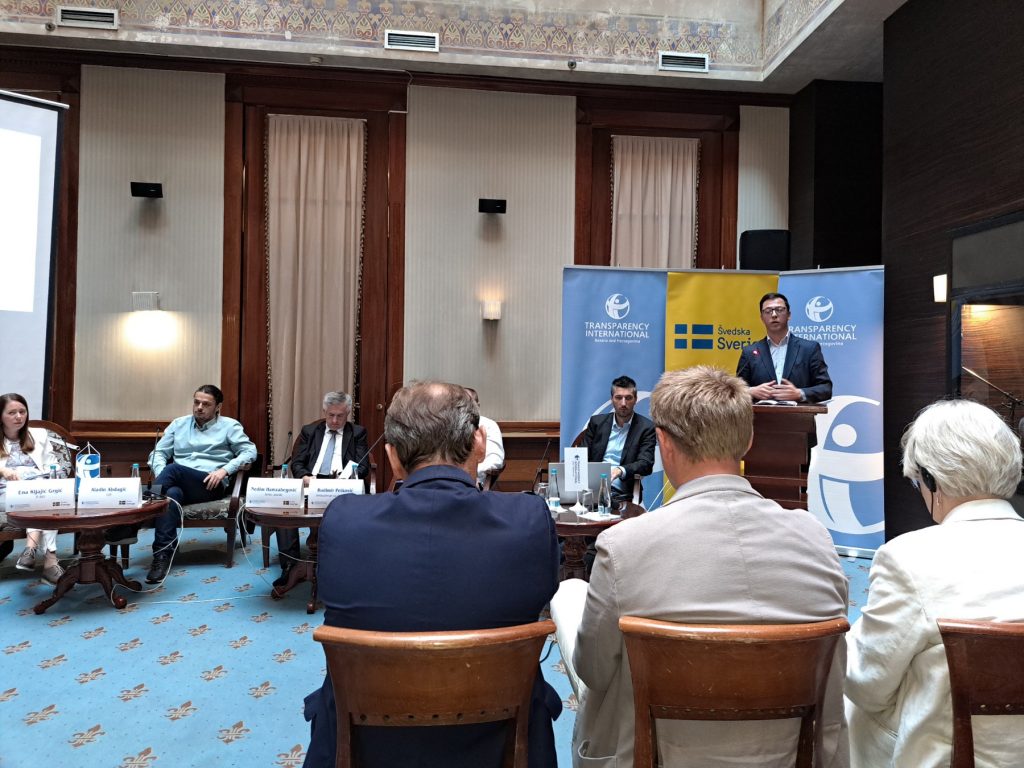
The new Law on Freedom of Access to Information (FOIA) at the level of the institutions of Bosnia and Herzegovina (BiH) was published in the Official Gazette of BiH on August 30, 2023, and entered into force on the eighth day from the date of publication. Previously, the Law was adopted at the session of the House of Representatives of the Parliamentary Assembly of BiH on August 22 and at the session of the House of Peoples on August 30, 2023. The law was adopted despite numerous criticisms from non-governmental and international organizations.
“The adoption of the Law on Freedom of Access to Information at the state level is an example of how new laws should not be adopted. The Ministry of Justice and the Council of Ministers completely ignored all the comments submitted by civil society, of which there were more than 200, without giving a single sentence or explanation as to why this is so,” said Srđan Blagovčanin, Chairman of the Board of Directors of Transparency International BiH ( TI BiH) at the conference on the occasion of the International Day of Freedom of Access to Information held by TI BiH in Sarajevo.
Blagovčanin added that the comments of international organizations and professional bodies, such as SIGMA and the Directorate for European Integration of Bosnia and Herzegovina, were also ignored.
Blagovčanin noted that the biggest shortcoming of the new law is that the Appeals Council at the BiH Council of Ministers is the body for resolving appeals in the second instance procedure.
“That body neither meets the criteria of expertise, nor the criteria of independence. This is not a solution that will ensure citizens the right to access information…” said Blagovčanin.
The law also envisages the proactive publication of information and the establishment of a Central Portal of public information, the way of organization and management of which will be prescribed by a special rulebook that will be adopted by the General Secretariat of the Council of Ministers of BiH within nine months from the date of entry into force of the law. The new law diminishes the role of the Institution of the Ombudsman of Bosnia and Herzegovina, and does not foresee sufficiently severe sanctions. The participants of the conference also emphasized that it was necessary to go in the direction of a solution that foresees that sanctions are imposed in case of violation of the law itself, and not only in situations where the order of the administrative inspector is not followed.
As in previous years, on the International Day of Freedom of Access to Information, which is celebrated on September 28, Transparency International BiH presented the results of research on the application of FOIA in public companies and public institutions. Although BiH has a new FOIA at the level of BiH institutions, the old laws on freedom of access to information are still in force at entity levels.
“The first conclusion is that there is no difference between the application of the law at different levels of government. The second conclusion is that we have a certain amount of progress, which is primarily related to the formal application of the law, to answers within the time prescribed by law. However, considering that the law has been applied in Bosnia and Herzegovina for twenty years, it is insufficient,” said Marko Vujić, associate for the provision of legal aid TI BIH, who presented the results of the research.
The research conducted in 2023 showed that 49.7 percent of public companies and 79.5 percent of public institutions responded within the legally stipulated period of 15 days. TI BiH asked 428 public companies and 792 public institutions for information on the composition of management bodies (directors and members of the board of directors), the amounts of salaries and benefits, data on the number of employees and financial reports for 2022.
The most common reasons for refusing to submit information have not changed in the last ten years, and refer to the fact that the requested information represents extensive documentation, that public authorities submit other information than requested, that public authorities need a longer period for submission, that they cannot provide information because they need to protect confidential commercial interests and protect privacy.
Due to the failure to provide information, TI BiH initiated over 200 court cases.
“The Center for Investigative Journalism (CIN) has been used by the Freedom of Information Act for 20 years and is an invaluable tool for investigative journalists to work with. In this way, we get very important information that institutions often want to hide, even though it should be public,” said Aladin Abdagić, editor-in-chief of CIN.
CIN has so far initiated 16 court proceedings for failure to provide information, and the final verdict, which has so far been in CIN’s favor, has taken an average of 18 months.
In addition to the old challenges in the application of FOIA, new ones are now following. One of them is which law will be applied in Brčko District: whether the new Law on Freedom of Access to Information at the state level, as it was until now, or Brčko District will adopt a new one.
